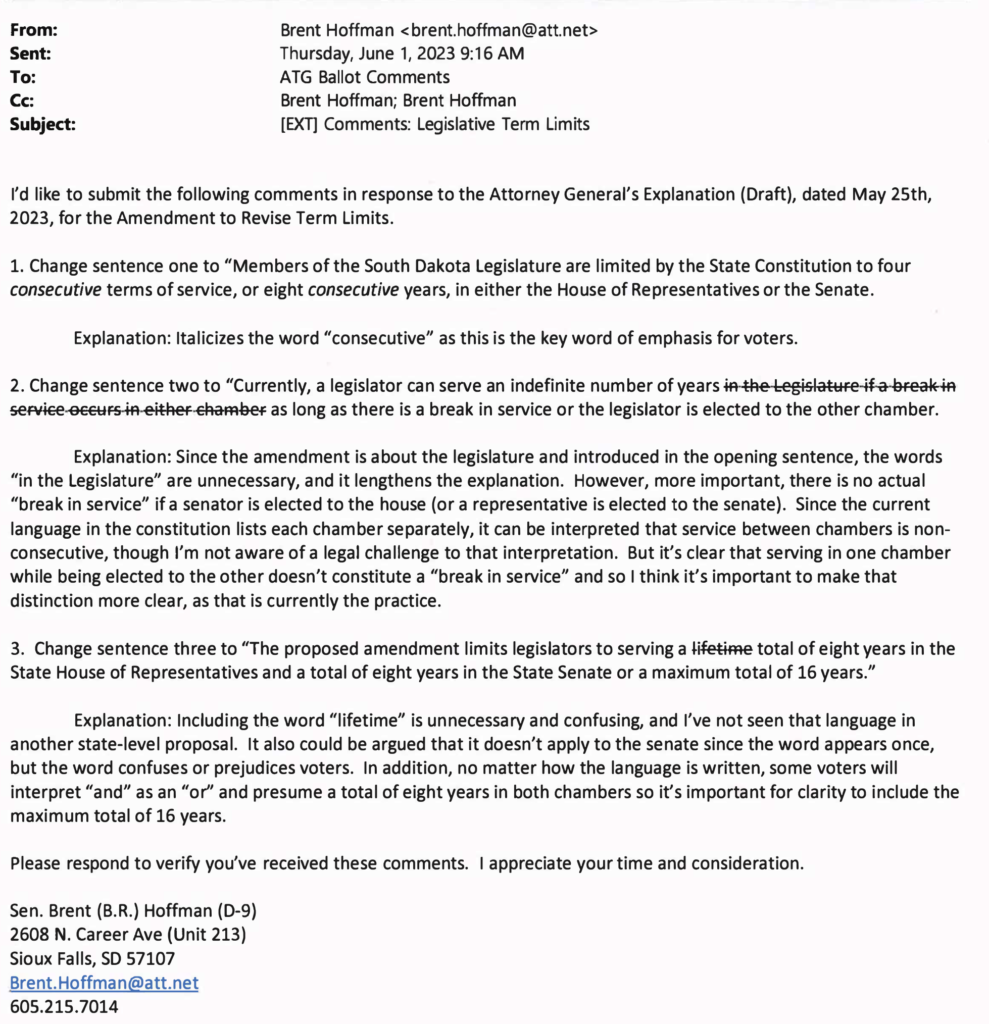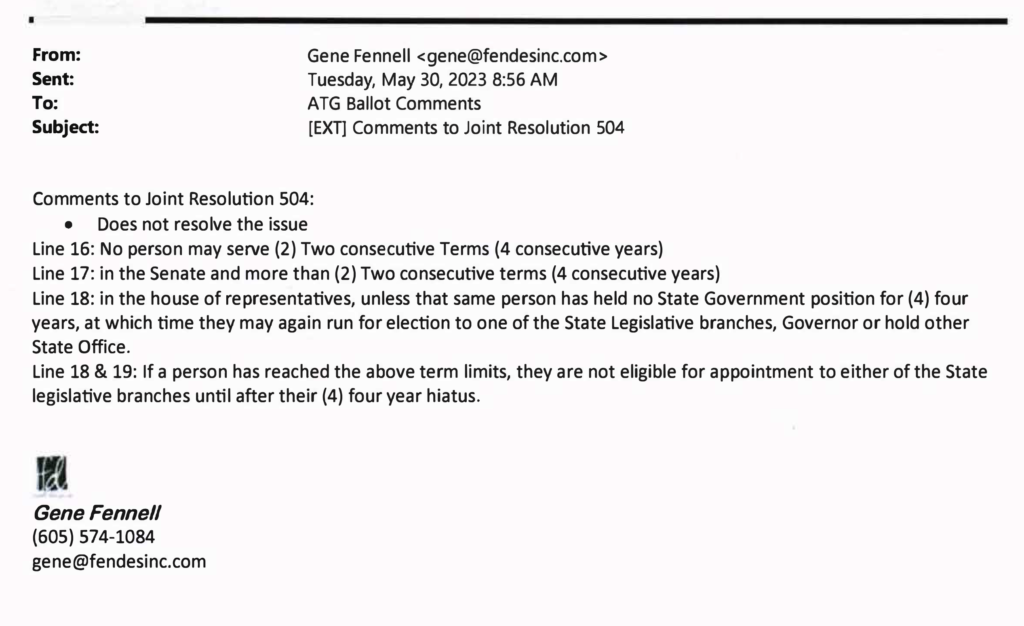I disagree with Senator Brent Hoffman’s (R-9/Sioux Falls) proposal to impose a lifetime limit of four terms in each chamber of the South Dakota Legislature (and I encourage voters to limit Hoffman to one term!). But I at least appreciate his accurate understanding and proper use of the public comment period on the Attorney General’s draft explanation of his proposed initiated amendment.
In 2021, the Legislature approved a ten-day public comment period and ten-day revision period for the titles and explanations that the Attorney General composes for each proposed ballot measure. The public comment is supposed to focus on the Attorney General’s language, not the language or merits of the ballot measure itself, on which the Attorney General has no input. Alas, as we have seen in nearly every public comment period, most people don’t get this law and thus bombard the Attorney General with arguments about the ballot measure itself, not the A.G.’s title and explanation. The comment period thus does little but delay the circulation of initiative petitions.
But Senator Hoffman has apparently read the law carefully and submitted wordsmithy comments to Attorney General Marty Jackley that do focus on Jackley’s language:

Hoffman recommends not just wording but italics. I love that level of detail… but I’m not sure format falls within the scope of the comment period or the A.G.’s explanation. SDCL 12-13-25.1 directs the Attorney General to produce “an objective, clear, and simple summary” of each initiative. Using italics to draw attention to the key word the sponsor wants to emphasize seems a subjective messaging choice. And if Hoffman is going to object to the word “lifetime” because he hasn’t seen it in other initiative explanations, I don’t see italics in any of the other explanations Jackley has produced this cycle. I also don’t see any language in the law on A.G. explanations (SDCL 12-13-25.1) requiring petition sponsors to replicate the A.G.’s formatting on their petitions and circulator handouts, so Hoffman’s quibble over this non-standard formatting choice may be moot. But I nonetheless appreciate attention to typographical detail as much as I appreciate attention to technical legal details. Well done, Senator Hoffman!
Not well done—and more typical of the misunderstood and misdirected public comment period—is the comment submitted by Gene Fennell of Custer, who submits this casually inscrutable critique:

Fennell does not say what “the issue” is that he wants to “resolve”. His line numbers are confusing—both Jackley’s explanation and Hoffman’s initiative text have fewer than 16 lines. Fennell appears to have gone back and read Hoffman’s failed 2023 Senate Joint Resolution 504, which Hoffman has recycled for this initiative and which has such line numbers in its PDF version. But that just shows Fennell isn’t commenting on the Attorney General’s explanation; he’s commenting on Hoffman’s initiative language. Apparently Fennell is proposing his own term-limits initiative to kick legislators out after two terms, not do lifetime limits, but make legislators sit out for four years before serving again.
While I appreciate proposals for initiatives, this public comment period is not meant for proposing new initiatives. The Attorney General cannot act on Fennell’s comment. Jackley cannot rewrite Hoffman’s initiative and make Hoffman circulate Fennell’s proposal. If Fennell wants a different initiative, he can write up and circulate his own petition for that initiative to compete with Hoffman (which would be lots of fun, and which I would support, because it would reduce the chances of either measure making the ballot and thus spare us from more unnecessary and anti-democratic term limits!).
Is it really necessary and constitutionally appropriate to even have this AG explanation? The AG explanation is unconstitutional on a number of grounds. First, it violates the separation of powers between branches of government. An initiative is a proposed bill and having the AG forcing his way into the legislative process before a bill is even introduced seems rather far outside the separation of powers we all learn about in civics. Second, it violates free speech. The AG’s explanation amounts to forced government speech which a petition circulator must present to any petition signer or potential signer.
I appreciate Senator Hoffman’s suggestions.. They vastly improve the AG’s explanations for his measure, but the inherent unconstitutionality of this entire bureaucratic interference into the initiative process still remains to be challenged. I’m positive it would fail any court challenge.
I understand the need for an explanation on the ballot, but that should be completed by the Legislative Research Council, again because the AG ballot explanation may also violate separation of powers. That process in the past was mired in corruption. It would be far better for the LRC to write the ballot explanation after a public comment period. The AG was only involved in the process in the first place because the Legislature didn’t have the LRC around back in the early 1900s.